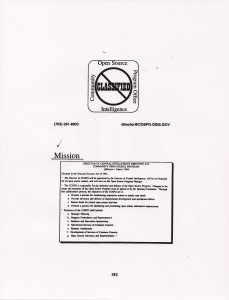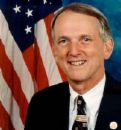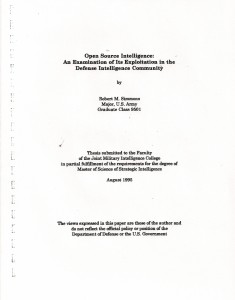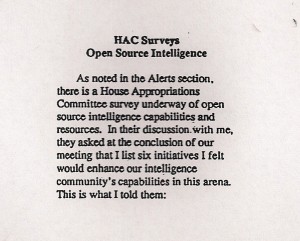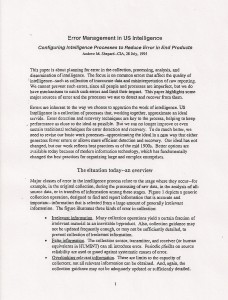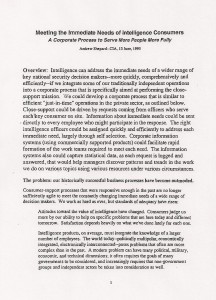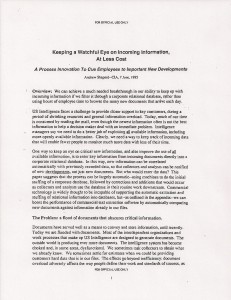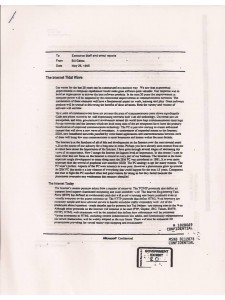
2006 PLATINUM LIFETIME AWARD Dr. Joseph Markowitz
Dr. Joseph Markowitz is without question the most qualified Open Source Intelligence (OSINT) pioneer in the ranks of those presently in or retired from U.S. government service. As the only real chief of the Community Open Source Program Office (COSPO) he tried valiently to nurture a program being systematically undermined by both the leadership and the traditional broadcast monitoring service. When he moved on to advise the Defense Science Board, he served America well by helping them fully integrate the need for both defense open source information collection and exploitation, and defense information sharing with non-governmental organizations. His persistent yet diplomatic efforts merit our greatest regard. 